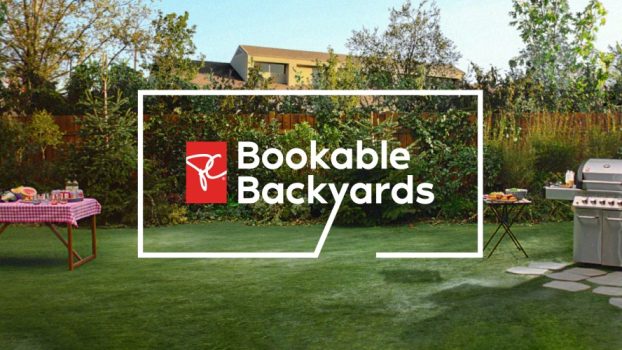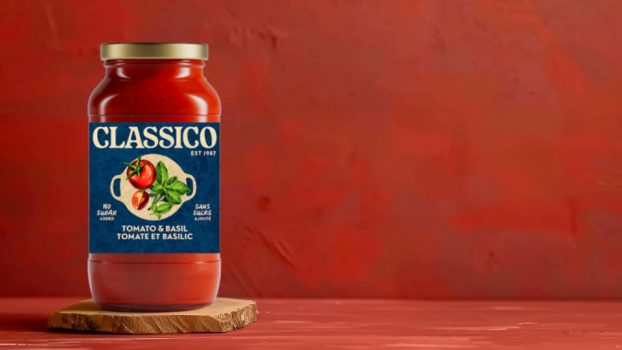You have to wonder just how much more of a need for speed and convenience people really have.
Amazon completely changed our quaint 20th century understanding of these two words. As it evolved from being a bookseller to an everything seller, delivery time also went from weeks to days to same/next day.
And, now, you can get groceries delivered in 10 to 15 minutes.
That’s thanks to a crop of so-called ultra-fast grocery delivery services that are setting up shop. The model began in Europe, where Berlin-based Gorillas quickly became the coalface of grocery delivery, and has expanded across the world into markets like India, Russia, the U.K. and U.S. Here in Canada, Vancouver-based startup Tiggy recently expanded to Toronto, covering the downtown area and parts of the west end, with plans to cover the entire city, much like it has already done in Vancouver. And Waterloo-based Ninja launched Toronto within weeks of Tiggy.
Tiggy operates out of “dark stores,” which are small warehouses that can be quietly tucked away in tight urban spaces. Right now it offers an array of about 2,000 grocery items. Its merchandise categories currently include breakfast, bakery, fruit, healthy alternatives, dairy free, keto and organic options, dairy, seafood, meat, sweets, snacks, personal and baby care and pets. It’s promising 15-minute delivery.
 Ninja, as if in a race to see just how fast a delivery person on a bike can travel, is offering 10-minute delivery, anytime before 2am. It has no minimum order, offers free delivery on orders over $9.99, and requires no subscription fees. It too operates out of micro-fulfillment centres scattered around town.
Ninja, as if in a race to see just how fast a delivery person on a bike can travel, is offering 10-minute delivery, anytime before 2am. It has no minimum order, offers free delivery on orders over $9.99, and requires no subscription fees. It too operates out of micro-fulfillment centres scattered around town.
Ninja says its currently leveraging content marketing, paid and organic social, SEM, display and video and direct mail to promote its launch in Toronto. “Hyper targeting with a full-funnel approach marketing strategy is our secret sauce,” says Mete Sayin, Ninja’s head of digital marketing.
“Additionally, we fully brand the exterior of our dark stores which are strategically placed around the city,” he adds. “Our main goal is to make people in our current and prospecting service area realize how game-changing and unmatched 10-minute delivery is. That’s why besides our awareness efforts, we offer our customers a credit to use in their first purchase. Once we capture new customers, they regularly receive our marketing emails with new categories or promotions.”
Both Tiggy and Ninja compete against incumbents Instacart (founded in 2012 by former Amazon engineer Apoorva Mehta) and Inabuggy. The latter operates in Toronto, Ottawa, Vancouver, Calgary, Edmonton, Montreal, Winnipeg, Saskatoon and Regina, while the former is active in all those cities and more. The difference between these services and Tiggy is that they are partnered with retailers, while Tiggy teams up directly with manufacturers.
Tiggy’s product line-up seems designed to cater more to a younger, healthier demographic, with items like Crafty Ramen DIY meal kits, Blackstar coffee, Earth’s Own non-dairy milk, Happy Planet smoothies and juices, Love Child Organics baby food, MadeGood organic nut free snacks, Keto Scream ice cream, and Tality Kombucha.
Inabuggy has relationships with 46 retailers, from Freshco to Costco, with Instacart clocking in at 27. While Tiggy’s focus is groceries, its competitors support non-food retailers such as Canadian Tire, Sephora, Staples, Bed Bath and Beyond, and Michael’s. The other differentiator seems to be speed, with the more established players promising under an hour vs. Ninja’s 10 and Tiggy’s 15-minutes.
In Canada, Tiggy and Ninja’s ultra-fast delivery promises are hampered by challenges. Hitting that deadline in the middle of a blizzard could make it difficult to live up to the promise. While Tiggy asks for 30 minutes in difficult weather, it’s yet another example of a blind spot app developers and start-ups seem to have when it comes to real-world logistics. It’s a problem that has plagued tech companies since the e-disaster of Christmas 1999, when everyone ordered online but no one was able to deliver in time for the big day.
Grocery delivery has seen such tremendous growth that even established restaurant meal delivery services UberEats and Skip the Dishes are getting into the game.
Unlike the new ultra-fast startups, UberEats and Skip the Dishes do not have the same working model. Ninja and Tiggy rely on staffers, not freelancers. Marketing and retail consultant Ed Strapagiel points out that could get expensive, especially when you consider the Ford government’s announcement of the Digital Platform Workers’ Rights Act, which is designed to give gig workers the same rights as employees, including a $15/hr minimum wage and the ability to keep their tips.
“To do ultrafast you need a lot of drivers hanging around, which is likely why the new startups prefer the employee model. So it will be a challenge for Uber Eats and Skip the Dishes to keep up,” says Strapagiel. “On the other hand, it’s a good idea for [UberEats and Skip The Dishes] to do grocery because with a meal you have to keep it warm while groceries are not so time-sensitive.”
When asked what impact the presence of this new ultrafast category could have on the big grocers like Loblaws and Sobeys, Strapagiel suspects “not much at all. The big guy can do it cheaper and better because of economies of scale.” What’s more, a Loblaws can offer over 30,000 SKUs compared to the relatively tiny inventories at Ninja and Tiggy.
However, Professor Sylvain Charlebois, director of the Agri-Food Analytics Lab at Dalhousie University, believes dark stores offer those smaller grocery delivery players the ability to service a local market effectively without having to make major investments. “And for a lot of people it’s less intrusive for a grocer to operate a dark store in their areas.”

























